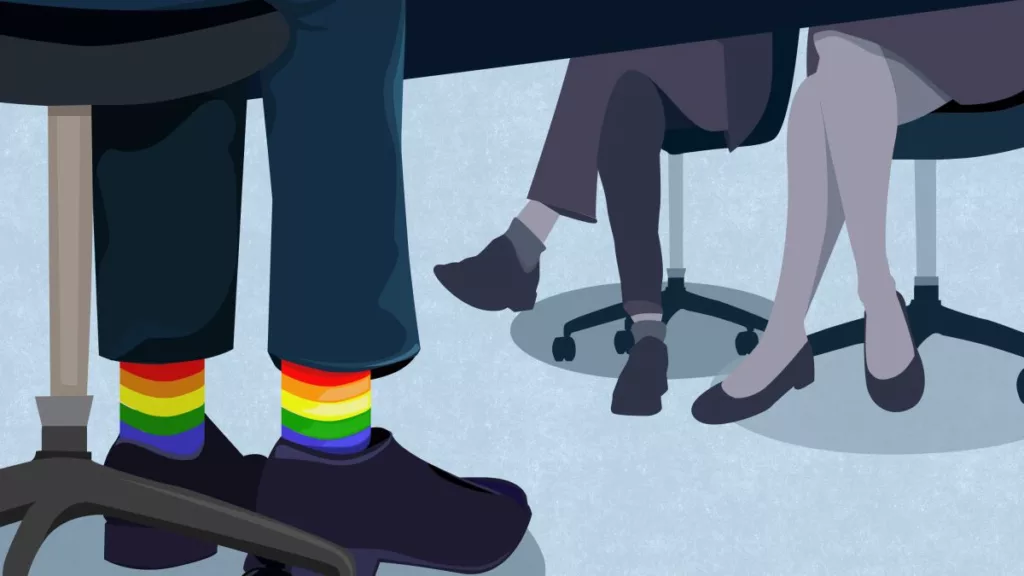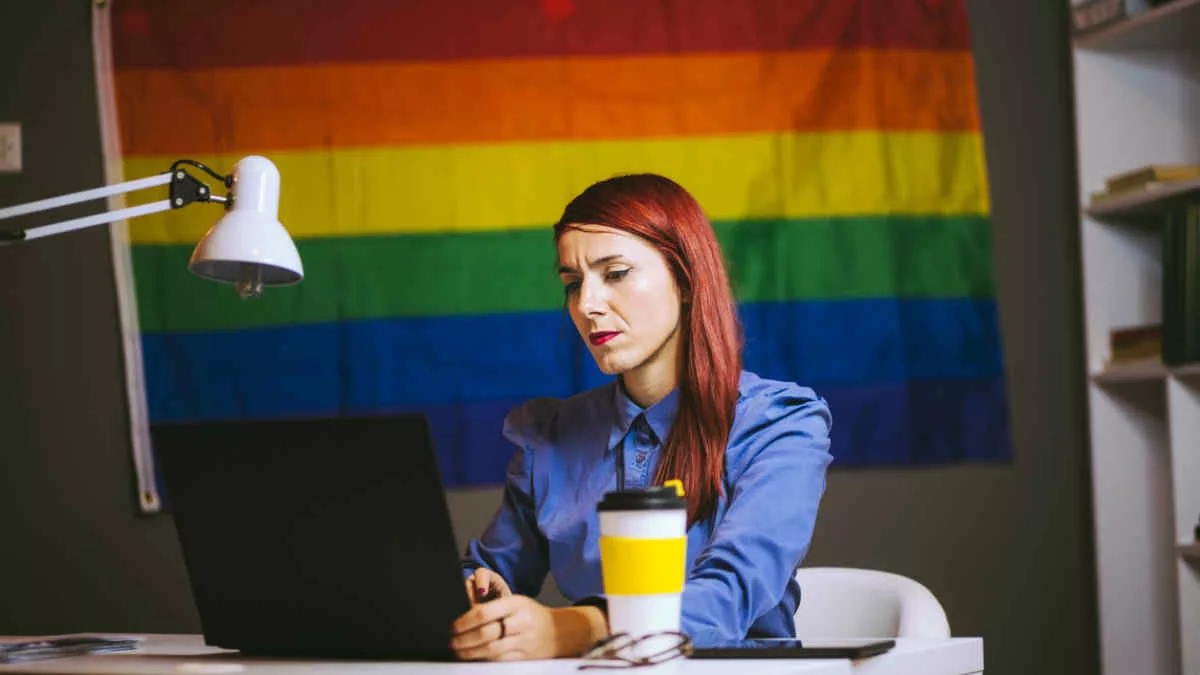Gays At Work: Aaron
Meet Aaron, the first participant in our ‘Gays at Work’ series
In our ‘Gays at Work’ series, we’ll interview LGBTQ+ people in a wide variety of jobs and professional fields to find out what it’s really like to be gay at work. This week, we caught up with Aaron, a maths teacher from London.
2023 marks 20 years since Section 28 was repealed. Under this legislation, it was prohibited to discuss or ‘promote’ homosexuality in schools. Students and teachers could not be open about their sexuality. But without it, are discussions around sexuality and gender in schools actually more inclusive? I spoke to maths teacher Aaron from London to understand if those 20 years have made a difference.
“It varies from school to school”, Aaron said. “At my previous school, they were very active in supporting LGBTQ+ rights. This support was not only part of the daily landscape, but was celebrated. The school did a lot during Pride for example. There was a real push for every department to include something LGBTQ+ in their lessons. For maths, it was a bit tricky. But I have an Alan Turing lesson that I can whip out.”
If this was his previous school’s approach to LGBTQ+ issues, what about his current school? “They’re on the right trajectory. I don’t see it being a priority, but we’re getting there. We have assemblies, but often it feels a bit like a tick-box exercise. In my current school, we have a large population of Muslim pupils. Because of their faith, we understand that they might not be comfortable with these topics. We have to make sure that no one feels alienated.”
Even without Section 28, sexuality and gender being part of the school curriculum is considered controversial. At the beginning of 2023, there was a petition (thankfully failed) calling for the removal of LGBTQ+ topics from schools. Between that and the ‘Don’t Say Gay’ Bill in Florida, I asked Aaron about his views on explicitly teaching about sexuality and gender.
“It’s essential that [sexuality and gender] is taught in schools. Part of being a teacher, no matter the subject, is about opening kids up to different views. Children need to be given a well-rounded view of the world, perspectives and opinions that go beyond their own lives. Sexuality and gender fall under this.”

I shared with Aaron an argument I’d had with a relative. Their position was that sexuality and gender falls under values and morals; they felt this doesn’t fall under teachers’ purview. “But we’re teaching our students morals and values every day. Every time we give a detention for bad behaviour or praise for good, it’s about morals and values. Why would LGBTQ+ education be excluded from this?”
And it’s not only about LGBTQ+ centric lessons. As an English Literature graduate and a voracious reader, I told Aaron how I felt LGBTQ+ ideas and themes should be included across subjects: gay writers in English and LGBTQ+ history in History. “I would whole-heartedly support this. It’s difficult for me teaching maths and not having a tutor group to teach PHSCE. But embedding it into the curriculum would help normalise it.”
Young people are going to learn about gay people and hear about trans issues in school or not. Thanks to social media and media representations, the access to queer storylines and characters has never been easier. Aaron and I agreed that the media is an essential learning tool alongside classroom teaching when it comes to LGBTQ+ issues.
“Having gay people on the telly helps normalise it and the representation is so much better. I used to watch Gimme Gimme and love it. Was it good representation? Absolutely not. Gay people are no longer the joke in the story; they have their own stories and they’re finally being told. That middle section of the Venn diagram between education and media is only getting bigger when it comes to inclusion.”
Formal teaching aside, children will always bring their own outside views and understanding of LGBTQ+ issues into school. Those views are not always positive, something Aaron and I both attested to. But with better on-screen representation and better in-school inclusion, I wondered if the general attitude of young people has changed, whether there was less bullying based on sexuality.
“There is definitely a lot less. When I was at school and even when I stated teaching, ‘gay’ was a common insult. ‘Those shoes are gay’ for example. When I was teaching in Barking, this was a huge issue. Thankfully, the school reacted positively and there was a crackdown on it. Now, I rarely hear it.” It goes to show how discussing these topics in school is important and impactful.
And what about personally? I asked Aaron what it’s like to be a gay teacher. “In all honesty, it doesn’t really affect it at all. With the kids, I wouldn’t necessarily lie if asked directly, but I wouldn’t volunteer the information either.’ But, I said, is that part of the general professional-personal line all teachers have to draw with students? “To really understand it, I wasn’t completely out when I started my teacher training or when I started teaching. With the kids, any kind of personal question I tend to shut down. They might ask if I’m married, and I’d just say no.”
That might be the case with pupils, maintaining that professional boundary, but surely it musty be discussed with colleagues: the water-cooler-between-marking chit-chat. “Sometimes out of habit, I’ll be non-specific about my personal life. There are colleagues that are friends who I’m open with. And there are colleagues that are just colleagues. As with the students, there are a lot of Muslim staff members; without generalising, I don’t know if they know I’m gay or even need to know. I end up code-switching throughout the day. A friend might ask what I did at the weekend and I’ll say I did something with my boyfriend. With others, I might leave the boyfriend part out.” Aaron added, “That’s less to do with the school, to be honest, it’s something that’s ingrained in my psyche.”
To close, I asked Aaron if he had any advice for LGBTQ+ people looking to go into teaching. “I wouldn’t advise it to anyone to be honest,” he joked, “but really, there’s nothing stopping you. The majority of students are open-minded and are probably the most open-minded generation so far. When my current school celebrate Pride with a small afterschool bake sale and activities, there are plenty of students there who want to be good allies.”
The 20 years between the overturning of Section 28 and now seem to have made a difference. In Aaron’s case, his school is on the right path towards inclusivity and open discussions about gender and sexuality. “Our teacherly duty is to educate our pupils all about the world and the various ways of living and being in it. Of course, teaching around sexuality and gender should be included.”



